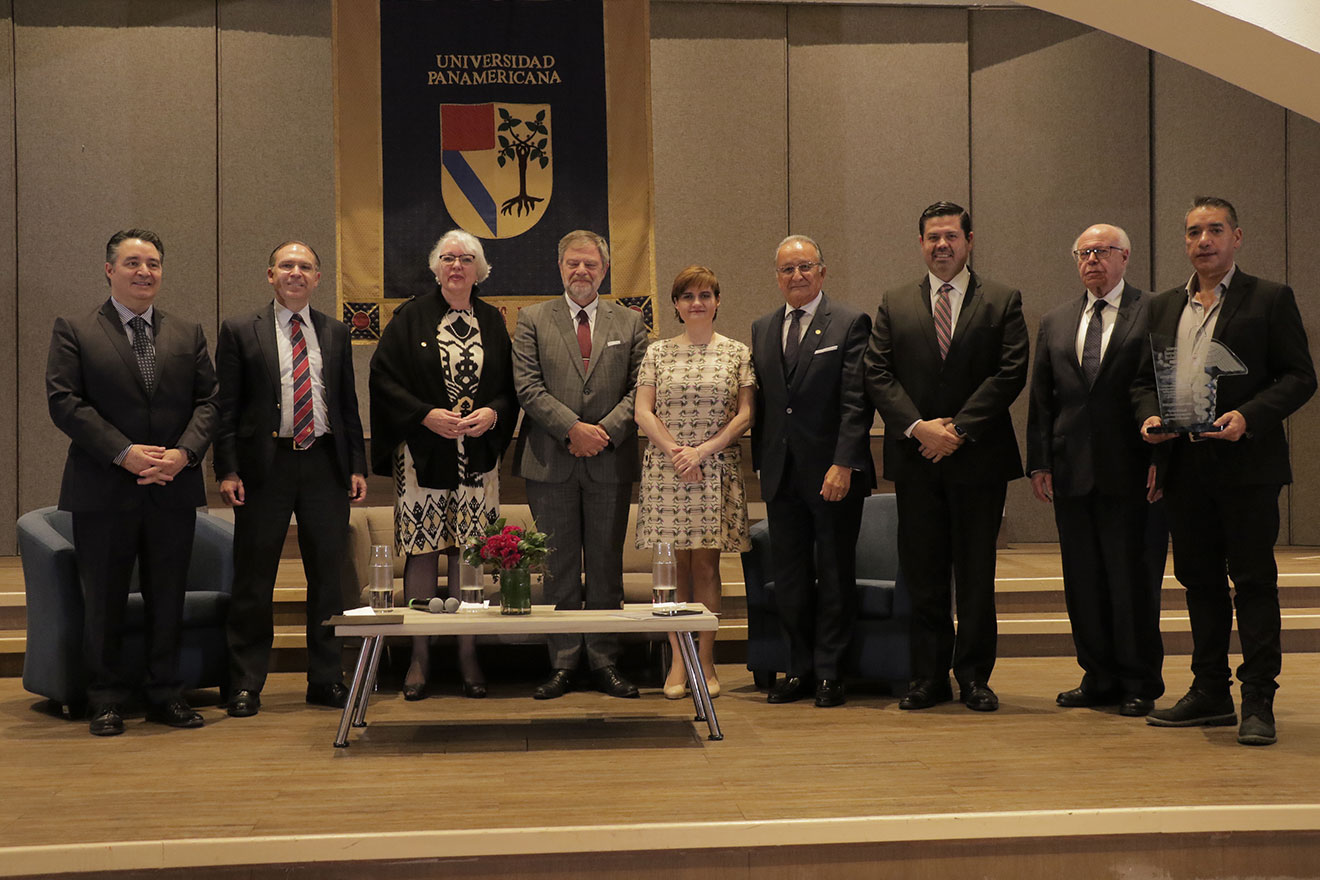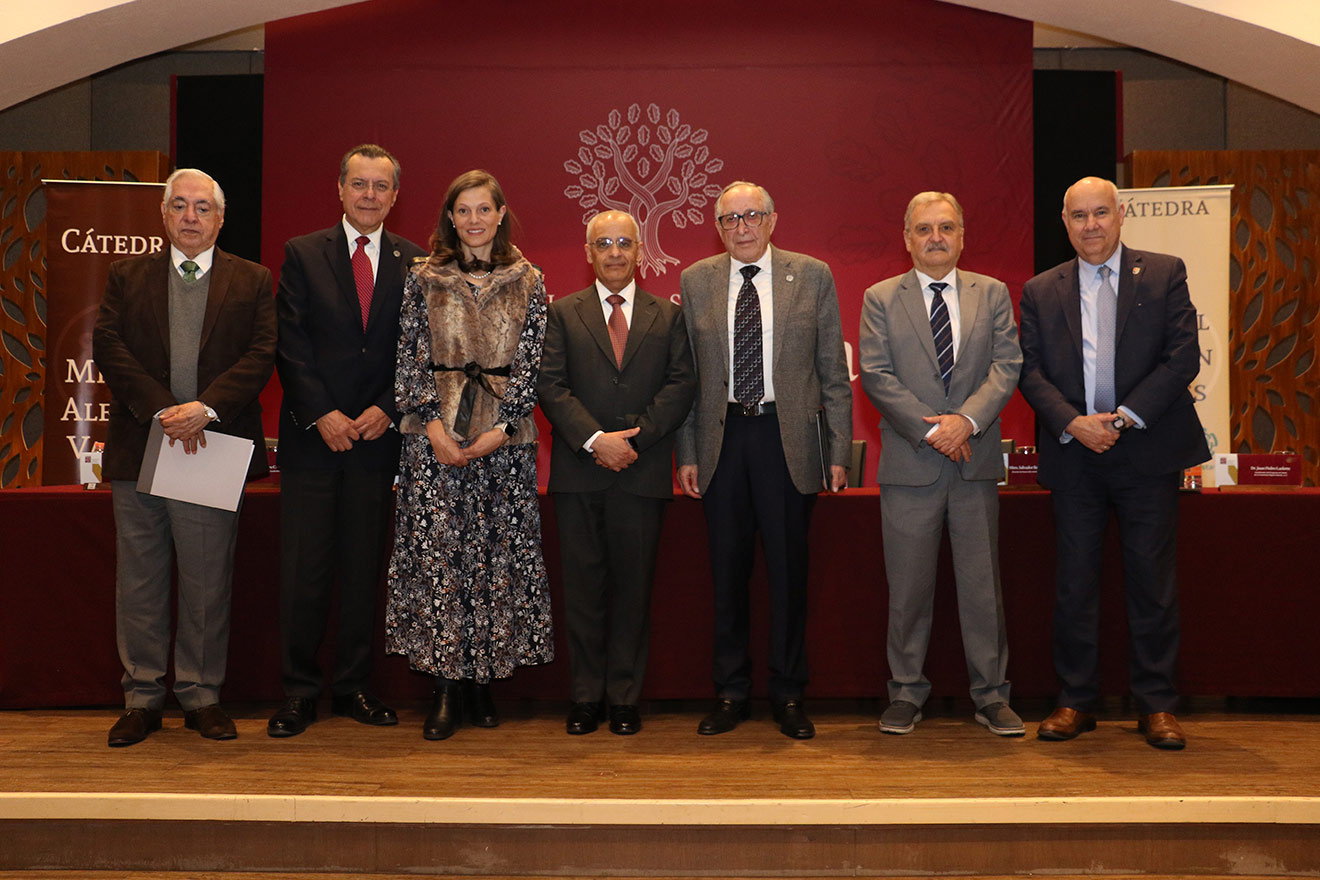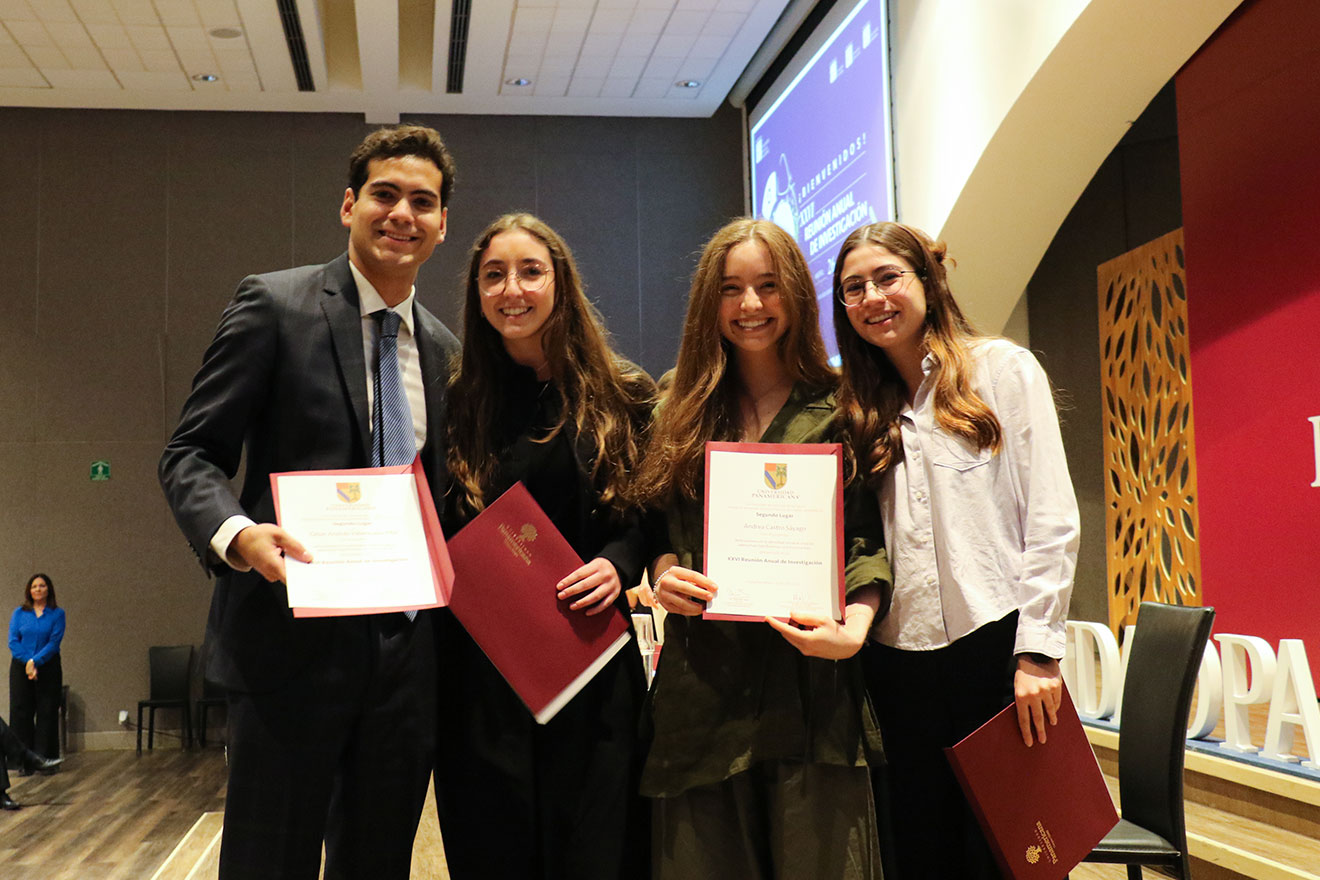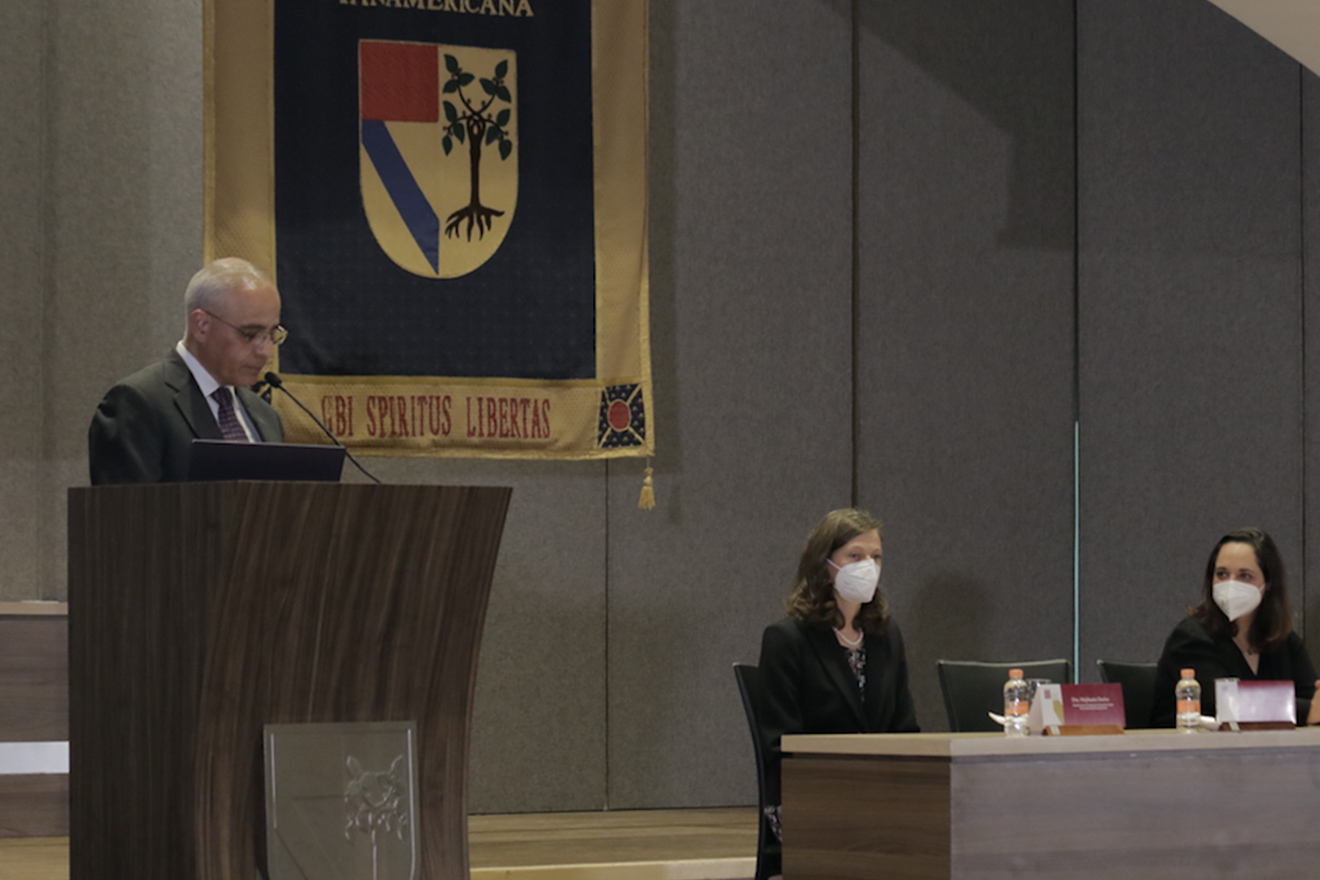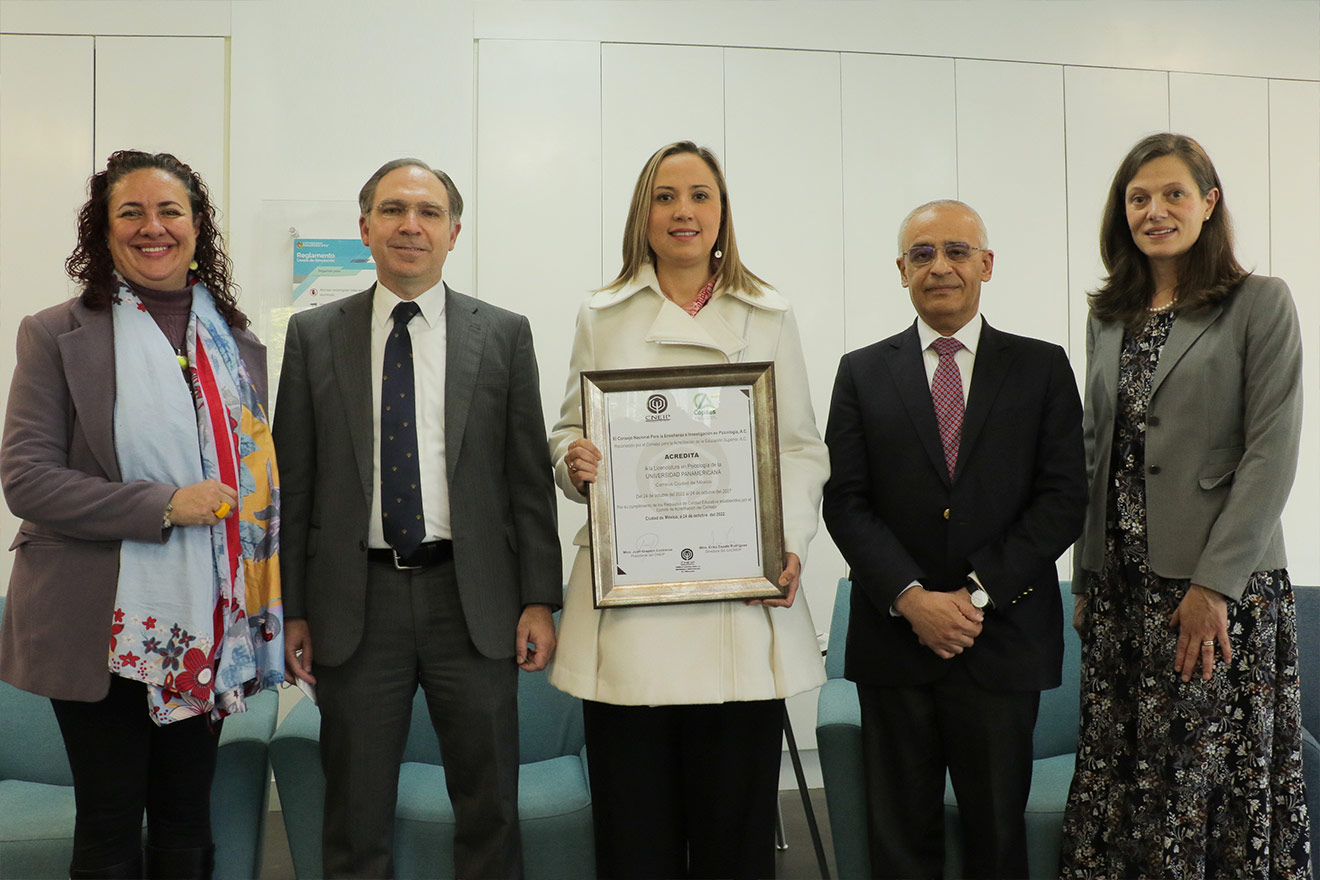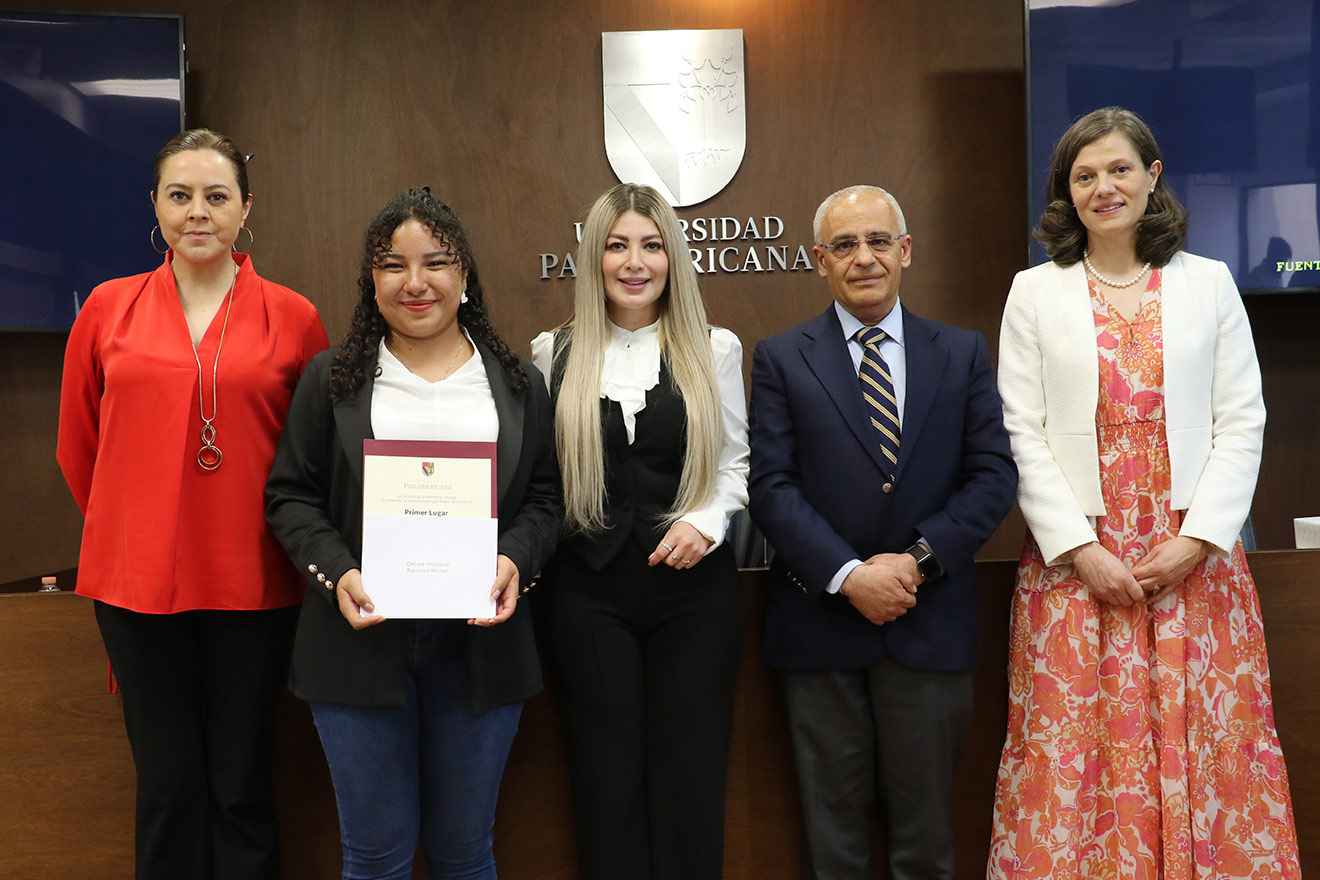Mexico City, May 12, 2023.- In its mission to generate critical students who will pursue a career as researchers, on April 28 the Universidad PanamericanaAnnual Research Meeting 2023, an event where the School of Health Sciences of the School of Health Sciences presented the results of the studies and research they have carried out.
2023 Annual Research Meeting
"Research allows you to be much more critical, to ask yourself the what of things, not just the why of things. (...) "The concept that in order to learn to do research, you have to do research is essential," said Dr. Gregorio Obrador Vera, director of the Faculty of Health Sciences.
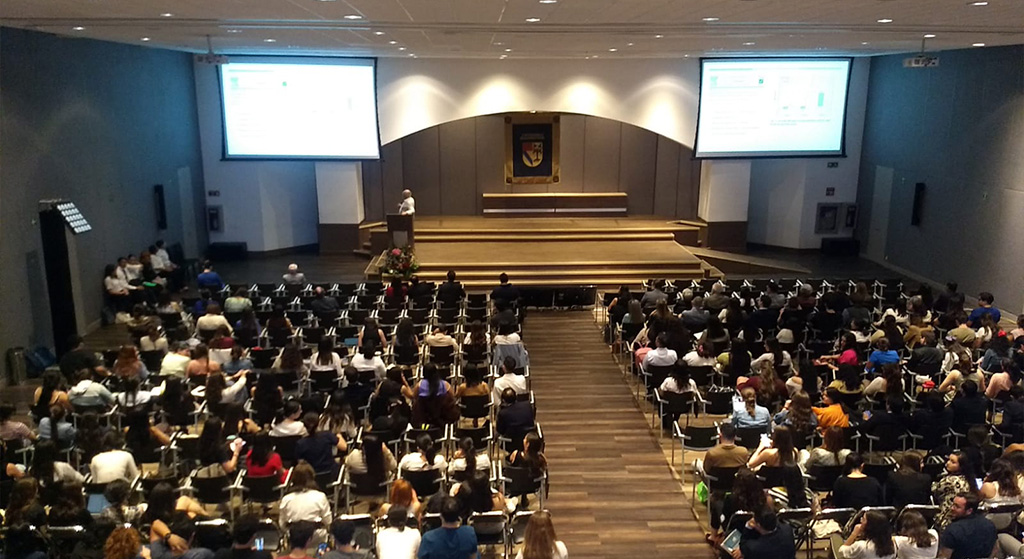
Cognitive neuroscience of aging
During the event, Dr. Miguel Dr. Miguel Ángel Villaneuropsychologist with more than 40 years of academic experience, founder of the Master in Neuropsychology of the FES Zaragoza-UNAM and founding member of the Mexican Association of Neuropsychology, gave the keynote lecture Cognitive Neuroscience of Aging.
During this, Villa talked about how the population pyramid has changed, making its base, formed by younger people, narrower and narrower. On cognitive aging he said: "It is the normal result that, as the years go by, you start to see changes in fluency, verbal, memory and some functions," he explained to the audience.
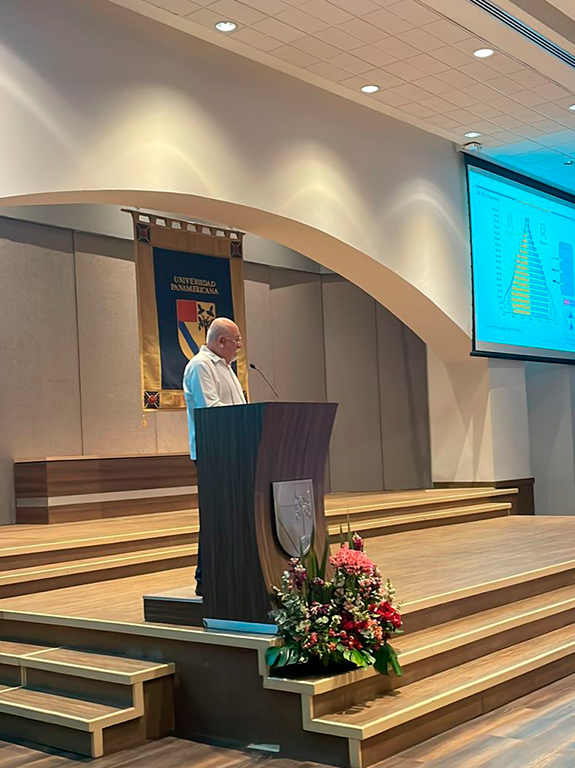
After this, Villa talked about what happens when the brain ages: "The cortex thins, the white matter, brain mass and neurotransmitters decrease; this is not determinant, there is no direct relationship between the cerebral and the cognitive". Given these two domains, Villa explains, the cognitive neuroscience of aging is born.
This science studies, on the one hand, brain functioning, both structure and function, and, on the other hand, cognition, through tasks designed to explore its functions.
About this research
Dr. Villa's research has focused on the high cognitive level maintained by some individuals despite their advanced age, despite the inevitable brain deterioration, and what these individuals have done to maintain this cognitive level. To carry it out, he based it on four models that he explained to the audience.
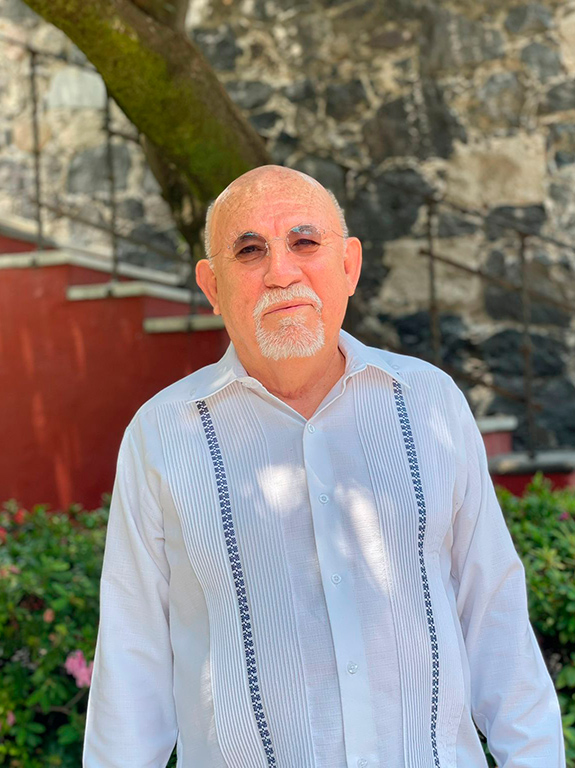
The first model he presented was the reduction of symmetry during aging, explaining that cognitive functions are distributed in two hemispheres, but as we grow older, one of the two hemispheres prevails over the other for specific functions. Villa explained that, in the case of older people, these functions begin to occupy both hemispheres, so when we get older it is necessary to differentiate them again.
In the next model, called a post- to pre-aging change, it stated that there is less activity in the occipital area of the brain, there has to be a compensation in the frontal area.
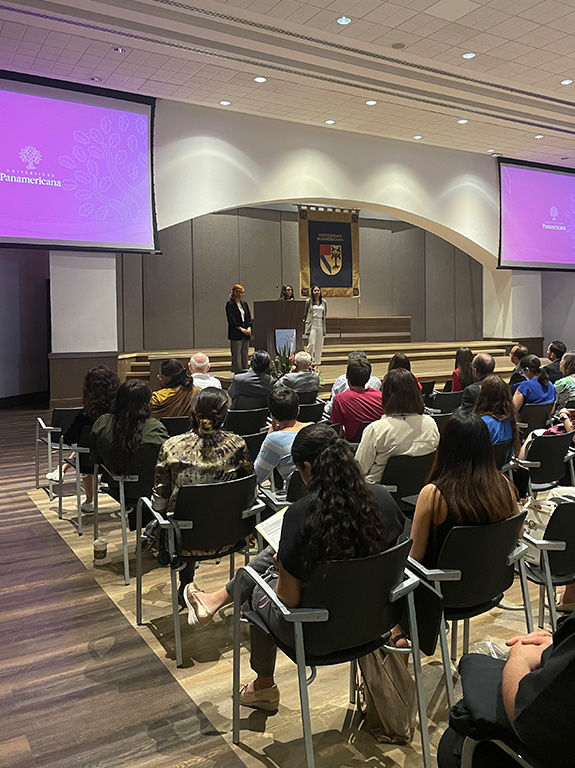
The third model, he indicated, not only applies to older adults, but throughout the life course; when cognitive demand increases and all cortical areas are required to be recruited, beyond those normally required, so there is a compensation as a reactivating process.
In the last model, known as the scaffolding theory of aging and cognition, it states that scaffolding or recruitment of other cortical areas is required because there has been a deterioration caused by the aging of an area. This is exemplified by what happens when learning to drive, at the beginning the concentration is too much, but as one learns, many of these processes are automated.
Grow or shrink
After explaining these four models, Dr. Villa gave examples of activities that can increase or decrease the scaffold. Situations such as stress or depression are factors that can decrease it, while new learning or exercise are beneficial factors for the scaffold, generating less brain deterioration.
In one of the hypotheses he has put forward about older people with high cognitive level, he detailed cognitive reserve, a way in which the brain naturally seeks to fight against brain aging: "The brain also tries to cope with brain damage by using cognitive strategies or processes to mitigate the effect of biological aging," he said.
Finally, the neurologist concluded that, despite the progress made, there is still a lot of research to be done: "As always, more research is needed, the cognitive neuroscience of aging is very young, brain functioning is very complex".
The award winners
At the 2023 Annual Research Meeting, awards were given to those Health Sciences students who were winners for their work as researchers. The awardees were:
- Oral presentation - School of Medicine
1st place
Epidemiological surveillance of cerebral vascular disease in a community in Mexico City.by Rodrigo Contreras Perusquia, Yuri Contreras Perusquia and Andressa Uzeda Cortezia.
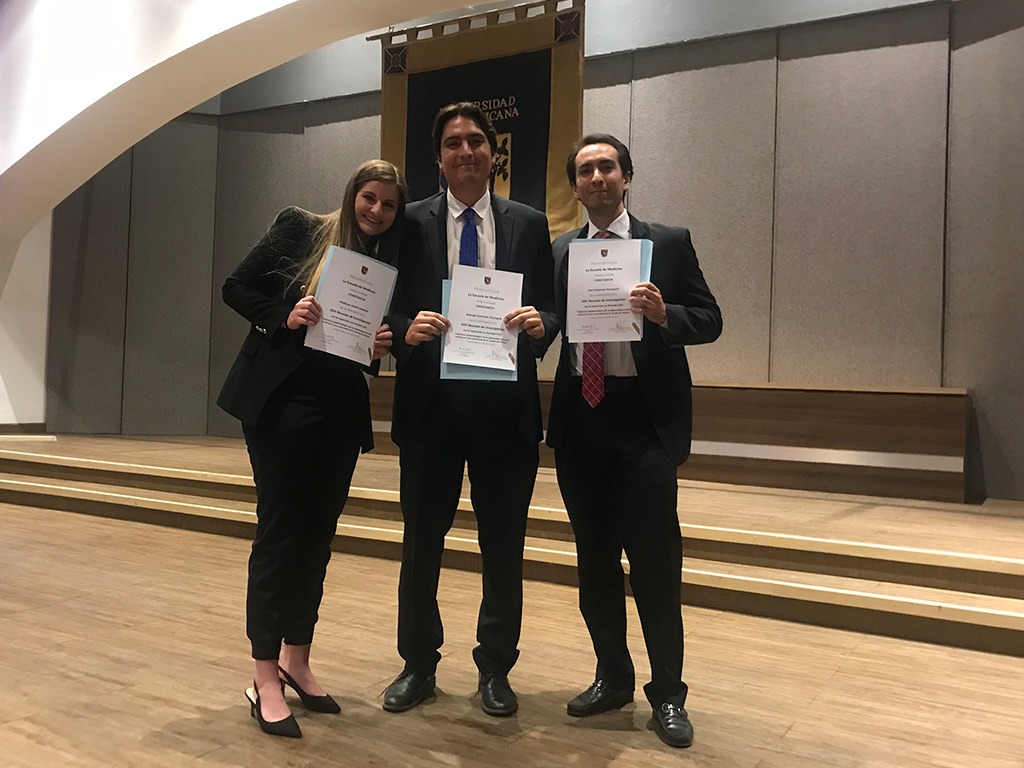
2nd place
Penile cancer in social networks: Analysis and evaluation of content.by José Carlos Ariza Ávila and Ana Paula González Morales.
3rd place
Minimally Invasive Cardiac Surgery at the Instituto Nacional de Cardiología Ignacio Chávezby Iñigo Díaz Moreno and Erik Francis Gardner Hilbert.
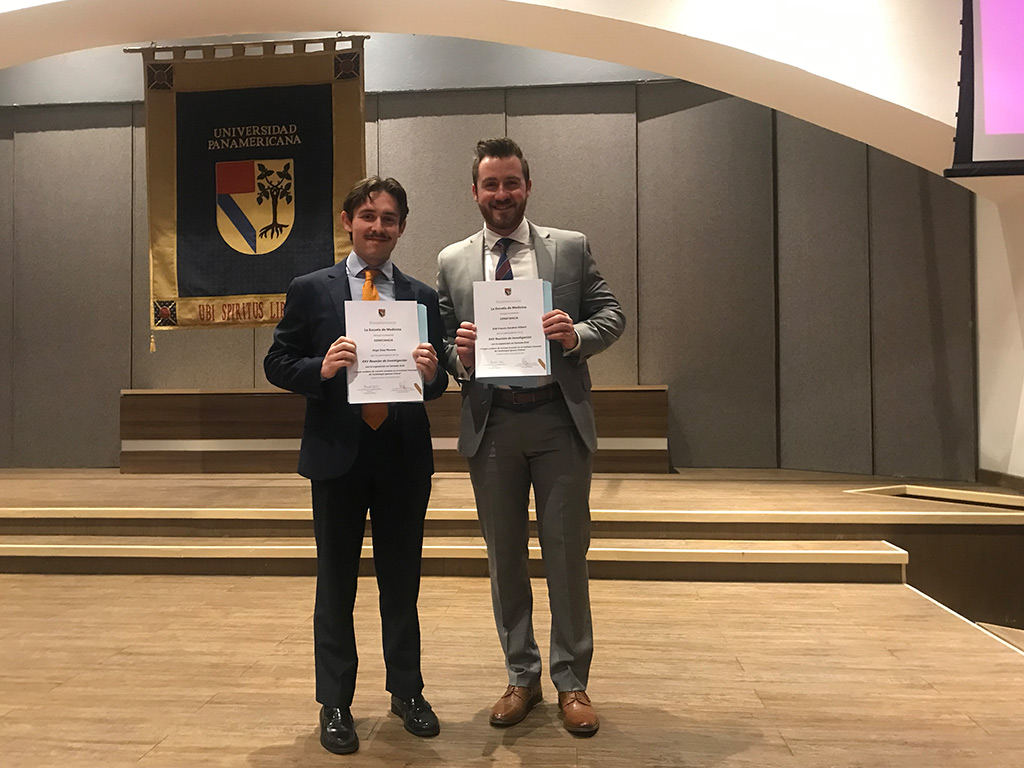
- Poster exhibition - School of Medicine
1st place
Identification of Gelectin-3 in transplanted livers for the detection of early graft dysfunction.by Constanza Yumi Gudiño Murata, Adriana Herrera Varela and Natalia María Romo Carbajal.
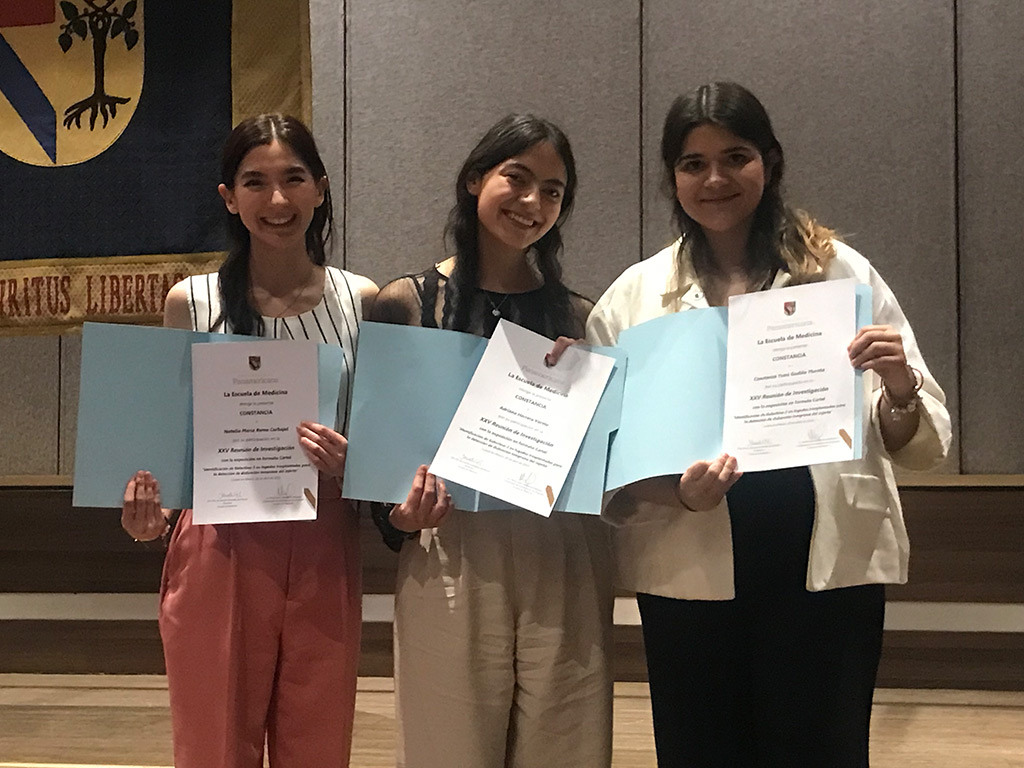
1st place
Comparison of corneal endothelial count following phacoemulsification surgery in
hard waterfall using the Centurion and Oertil platformsby Ivonne Ruiz Delgadillo.
2nd place
Limitations and opportunities for early diagnosis of solid cancer in children.by Ian Carlos Joseph Alaníz Manjarrez, Abimael García Pérez and Andrea Gómez Álvarez.
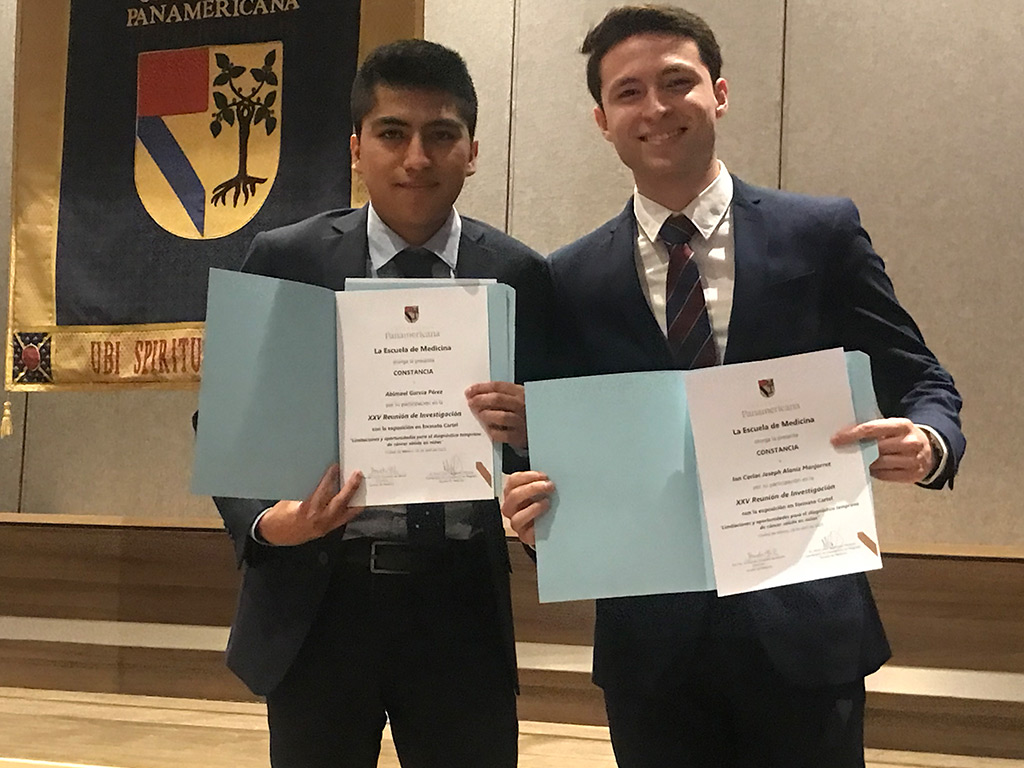
3rd place
Presence and localization of the regulatory molecule LNK in cancerous breast cellsby Natalia María Barrón Cervantes and Beatrice Puliti.
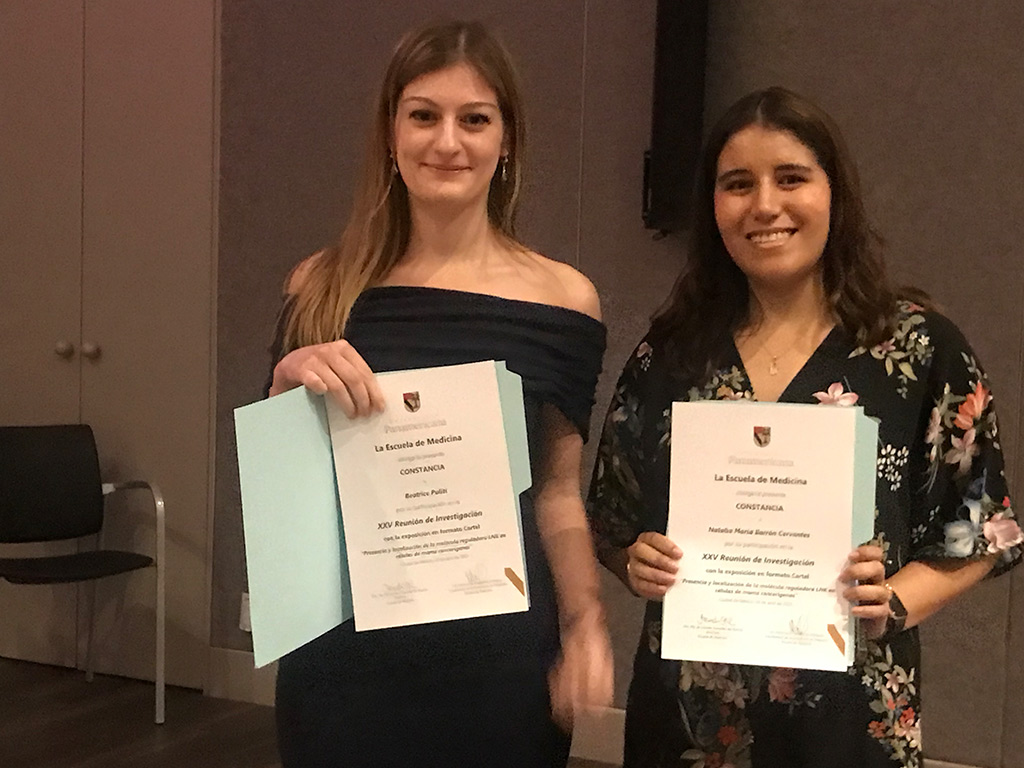
- Oral presentation - School of Nursing
Best research paper
Association between anxiety symptomatology and university quality of life in Health Sciences students.by Regina Carrillo Mendoza, Cesar A. González Beltrán and Dafne Garay Navarro.
- Poster exhibition - School of Psychology
1st place
Evaluation of the impact of a psychological intervention workshop on therapeutic adherence in adult patients with chronic pain.by Ana Paula Lira Cárcamo and María José Valenzuela Peña.
2nd place
Differences in PTSD symptomatology in victims of sexual abuse when it is of incapacitated or forced type: systematic reviewby Regina García Arroyo and Sofía del Carmen Noguera Carreiro.
3rd place
Objective and subjective alterations in attention and memory in patients with obstructive sleep apnea and healthy subjects.by Ana Paulina Ramírez Sánchez and Andrea Reyes villa.
- Oral presentation - School of Psychology
1st place
Sex differences in the anxiety and depression response in an animal model of posttraumatic stress disorder by Jimena Cedeño Casillas and Eduardo Mercado López.
2nd place
Acute effect of repetitive transcribed magnetic stimulation at 5 Hz on risk-taking and impulsivity in patients with cocaine dependence in a placebo-controlled studyby Dausnet Alejandra Villejas Mejía and Regina Fernández Perdiz.
3rd place
Mild cognitive impairment in patients with Parkinson's disease: a functional connectivity analysisby Maitane González Llano and María José Tames Bravo.



